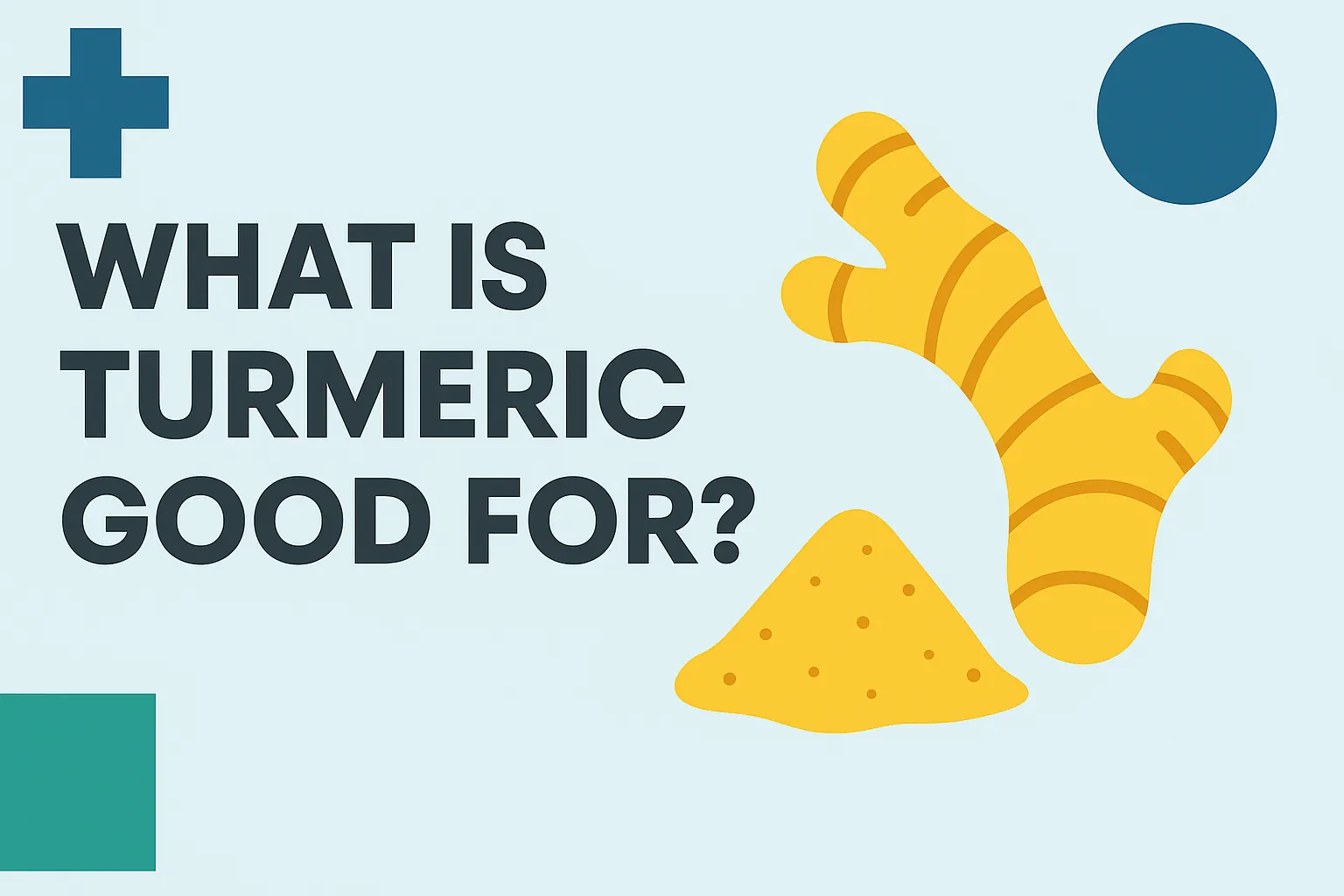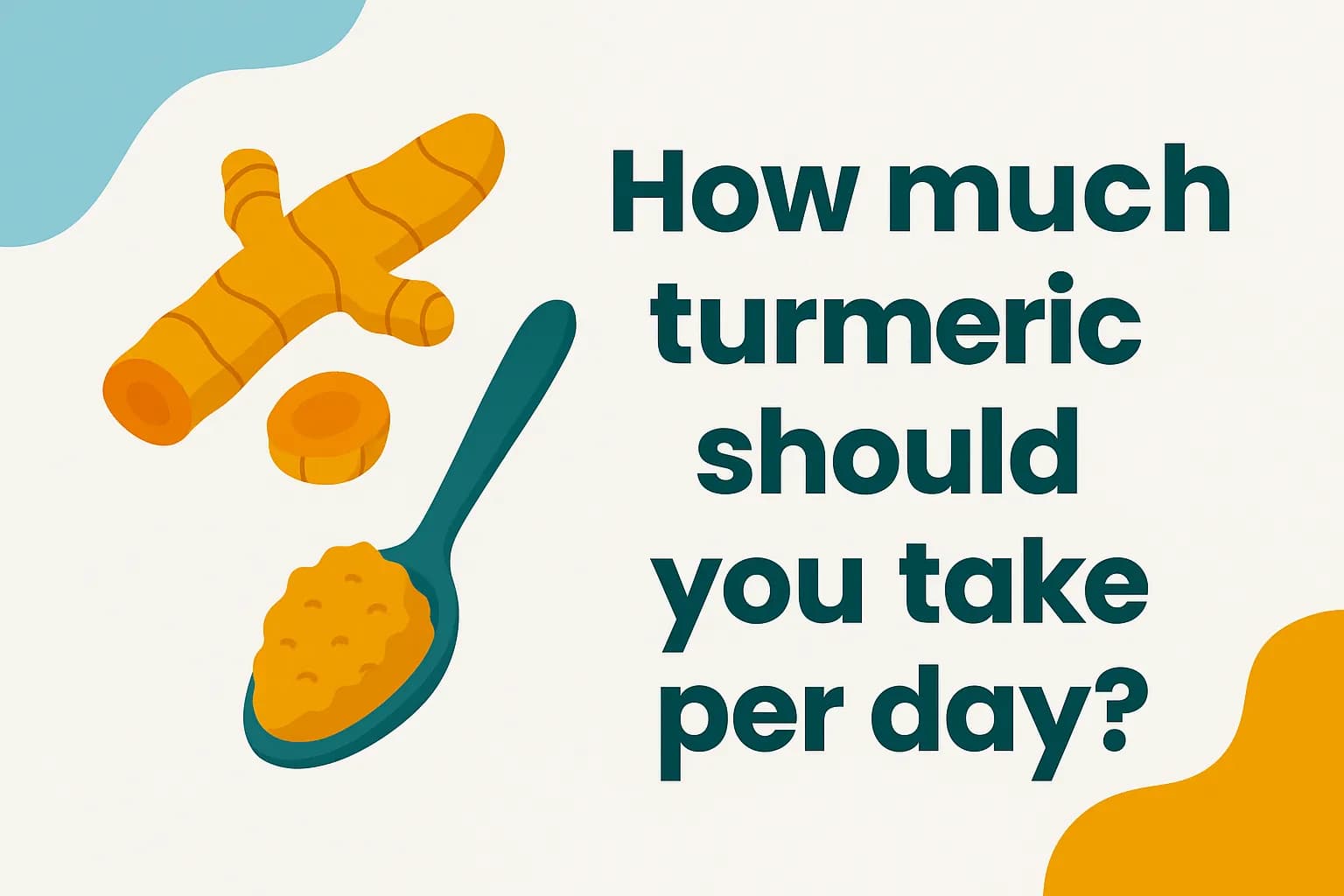What is turmeric good for?

Turmeric is a spice that gives curry its yellow color and has been used for centuries in cooking and traditional medicine. Its main active compounds, called curcuminoids—especially curcumin—have a variety of health‐promoting properties. Turmeric comes from the root of the Curcuma longa plant, part of the ginger family, native to Southeast Asia.
Key health benefits
- Anti‑Inflammatory Properties: Curcumin reduces inflammation, helping manage conditions like rheumatoid arthritis, osteoarthritis and ulcerative colitis.
- Antioxidant Benefits: Turmeric neutralizes free radicals, protecting against high blood pressure, heart disease and cancer.
- Brain Function: Curcumin may boost brain proteins that support memory and learning, potentially helping prevent Alzheimer’s disease.
- Heart Health: Improves blood vessel function and may lower cholesterol, aided by its anti‑inflammatory and antioxidant effects.
- Cancer Prevention: Research suggests curcumin can slow growth and spread of certain cancers, particularly in the digestive tract.
- Pain Relief: Its anti‑inflammatory action can reduce joint pain, making it a natural alternative for osteoarthritis.
- Digestive Health: Aids digestion, reduces bloating and gas, and may help with indigestion and irritable bowel syndrome.
- Skin Health: Used topically or orally to improve acne, psoriasis and eczema through its anti‑inflammatory and antioxidant actions.
- Depression Management: May boost serotonin and dopamine levels, showing potential antidepressant effects.
- Immune Support: Strengthens the immune system with its combined anti‑inflammatory and antioxidant properties.
To enhance curcumin absorption, consume turmeric with black pepper (piperine) or dietary fats.
What are the side effects of turmeric?
- Gastrointestinal issues: High doses can cause nausea, diarrhea, indigestion, or worsen acid reflux.
- Bleeding risk: May increase bleeding if you take anticoagulants; stop supplements two weeks before surgery.
- Gallbladder problems: Use with caution if you have gallstones or gallbladder disease.
- Iron absorption: Can reduce iron uptake, problematic for those with iron deficiency.
- Kidney stones: High intake may raise oxalate levels, contributing to stones.
- Allergic reactions: Rare skin rashes, itching or breathing difficulty.
- Liver issues: Rare reports of liver toxicity with very high supplement doses.
- Blood sugar: May lower blood sugar too much when combined with diabetes medications.
- Hormonal effects: Influences estrogen levels; use cautiously with hormone‑sensitive conditions.
Does turmeric interact with medications?
- Blood thinners (warfarin, aspirin, clopidogrel): Increases bleeding risk.
- Acid‑reducing drugs (omeprazole, esomeprazole, cimetidine, ranitidine, lansoprazole): May interfere with their effect.
- Diabetes medications: Can enhance blood‑sugar lowering, risking hypoglycemia.
Shop Medications
Who should not take turmeric?
Consult your healthcare provider before using turmeric supplements if you:
- Are pregnant or breastfeeding
- Have gallbladder or kidney problems
- Have a bleeding disorder or take blood thinners
- Have diabetes
- Have iron deficiency
How should you take turmeric?
You can incorporate turmeric in several ways:
- Topical application: Apply paste or cream to the skin for localized benefits.
- Culinary use: Add powder or fresh root to soups, curries or “golden milk.”
- Dietary supplements: Use standardized extracts high in curcumin, often formulated with piperine or fats to improve absorption.
Sources
- Cox FF, et al. Protective effects of curcumin in cardiovascular diseases—impact on oxidative stress and mitochondria. (2022). Accessed Aug. 22, 2024.
- Novaes Matias J, et al. Antidepressant effects of curcumin: A systematic review. (2021). Accessed Aug. 22, 2024.
- Paultre K, et al. Effects of turmeric/curcumin extract on knee osteoarthritis pain and function. (2021). Accessed Aug. 22, 2024.
- Akbari M, et al. Curcumin and weight loss in metabolic syndrome: A meta‑analysis. (2019). Accessed Aug. 22, 2024.
- Jakubczyk K, et al. Antioxidant potential of curcumin—meta‑analysis of clinical trials. (2020). Accessed Aug. 22, 2024.
- Ahmad RS, et al. Biochemistry, safety, and clinical applications of turmeric: A mechanistic review. (2020). Accessed Aug. 22, 2024.





